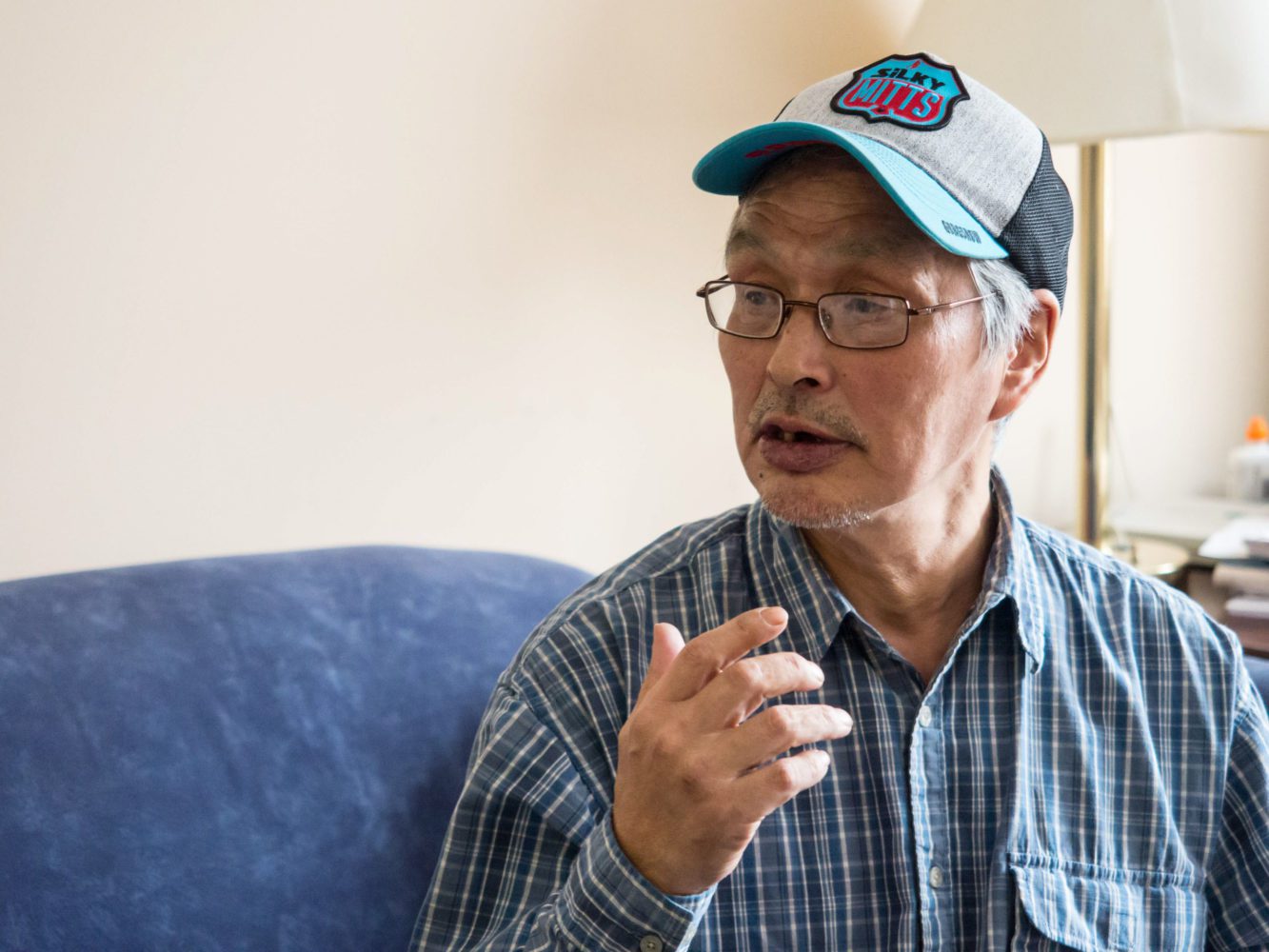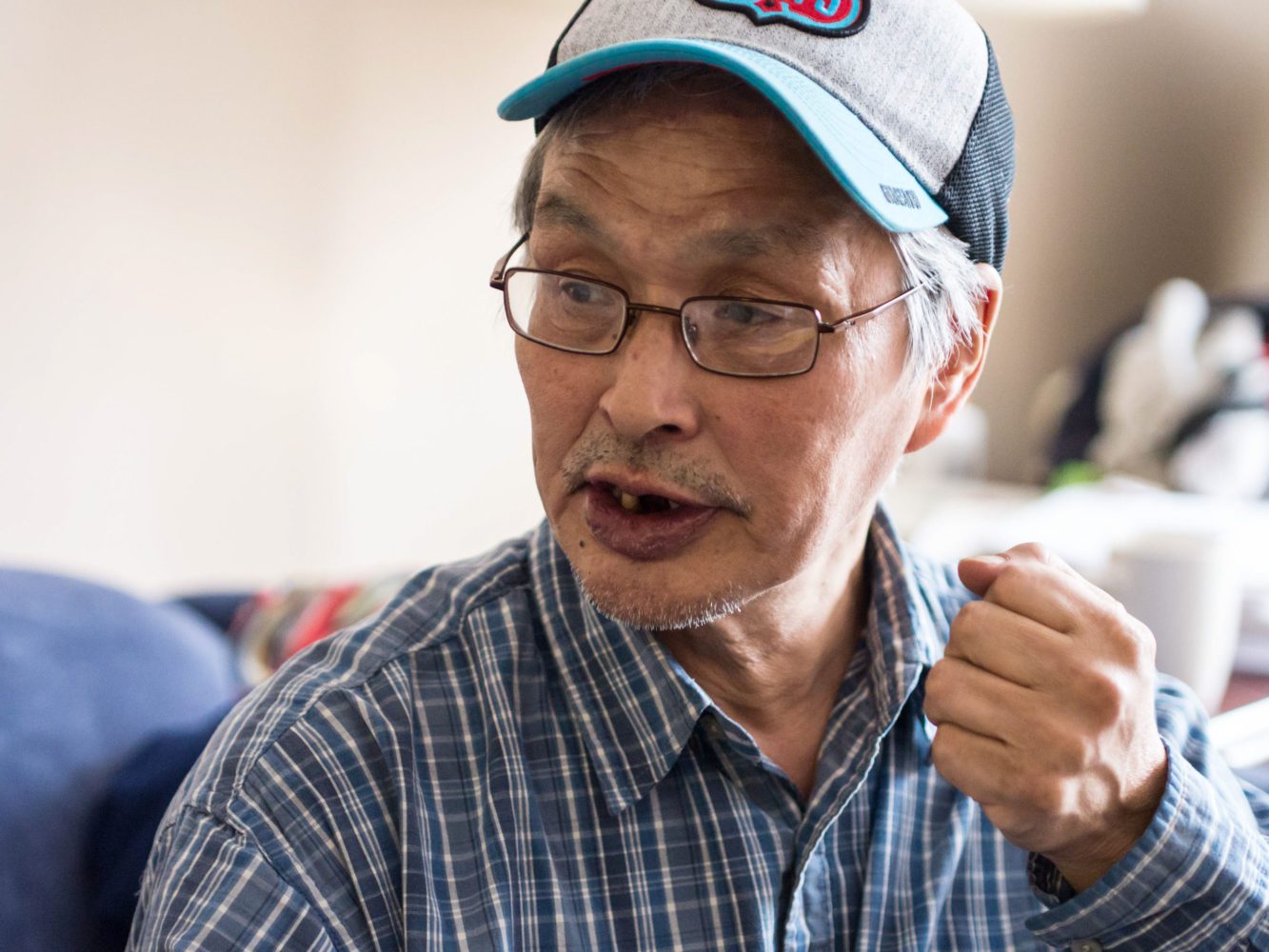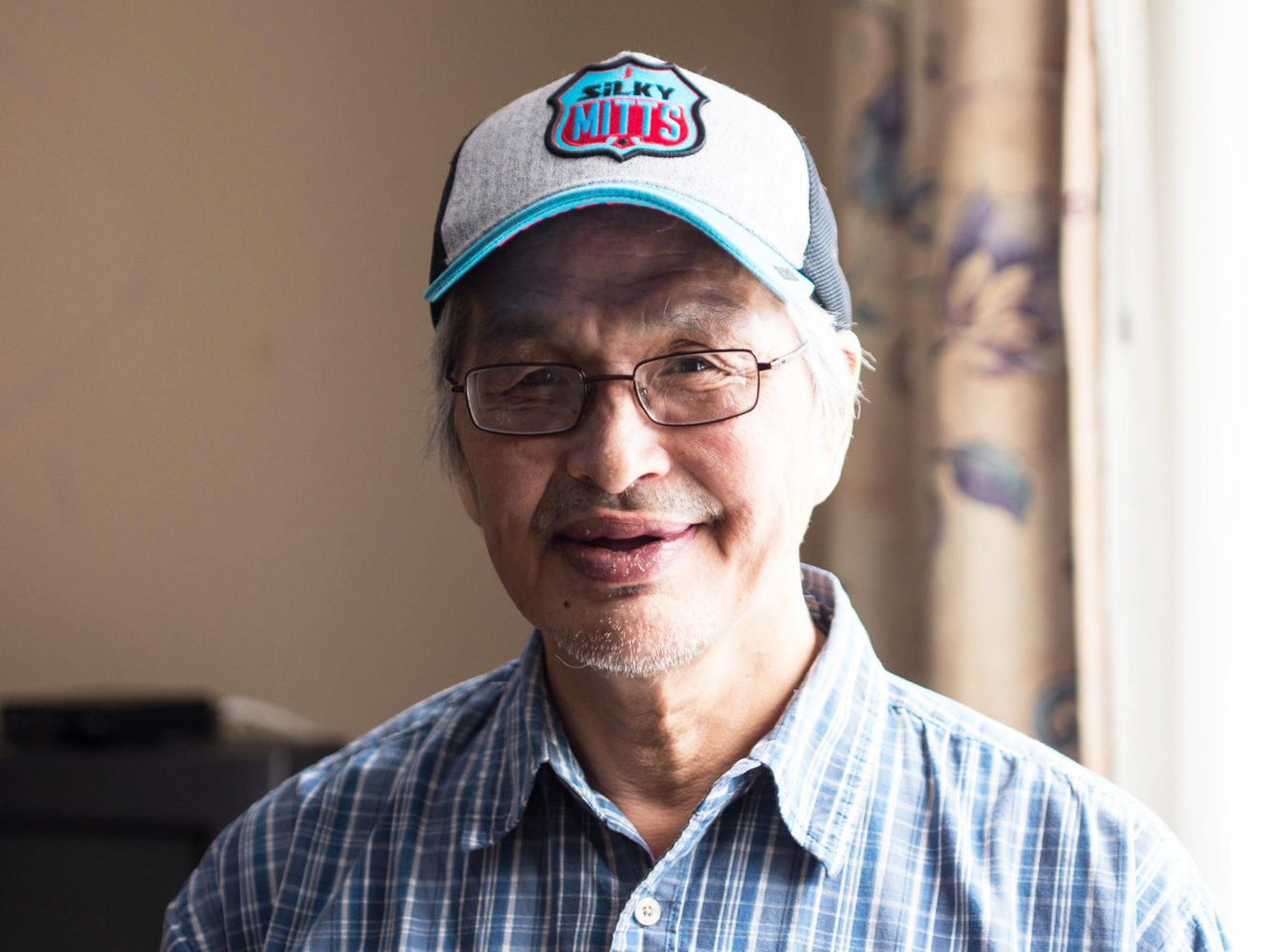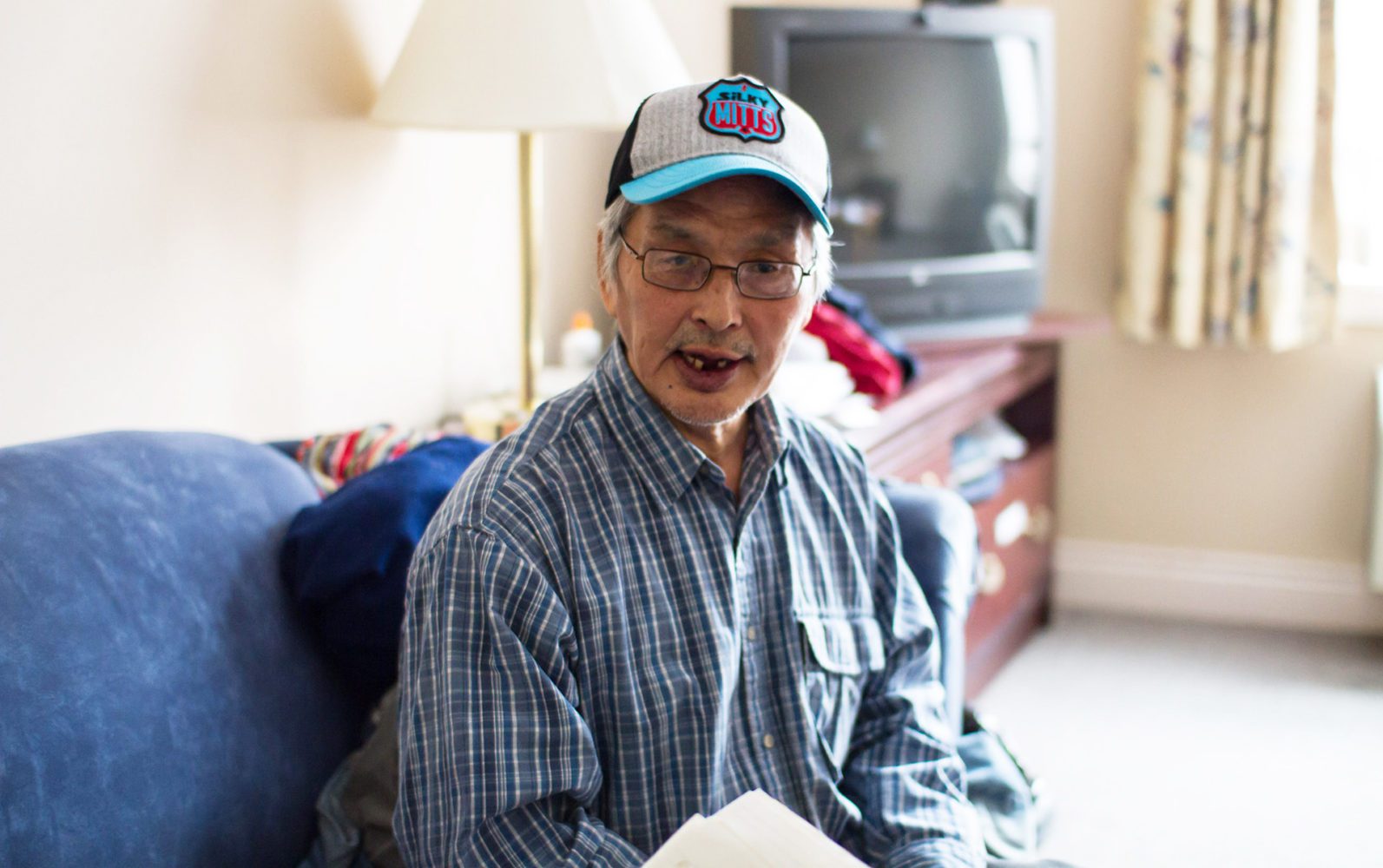Residential school trauma and frustration with the system left Simeonie drinking heavily and homeless for over a decade. He talks about how the 2008 Prime Minister’s apology was a turning point for him, and how a managed alcohol program has made his life better.
“I went to a residential school and suffered severe trauma, with language loss and abuse. Afterwards, I went through counseling and psychotherapy for childhood trauma for about five years. It was pretty severe stuff. But, for me the counselling was a very good experience; I got a lot out of it.”
“I took law for about three years at Carleton. English and political science too. I also worked at a National Inuit organization where I answered enquiries from all over the world about Inuit culture. And I stopped drinking for about seven or eight years.”
I got involved with politics, trying to get the church and the government to apologize for the Indian Residential School system. That took a toll on me, and I went heavily back into drinking. The issues were too heavy on me, and I just lost it.

“When I was drinking, I used to yell anti-white sentiments at everyone. People later said they could hear me two, three blocks away.”
Once, we were thinking of breaking our abusers’ graves. One guy had axes and shovels. But then I said, ‘Oh my God, I don’t think we have to go down to this level to work it out. We can come up with something better than to do this.’
“The Prime Minister apologized in 2008, with the leaders of the First Nations, Metis and Inuit present. I feel the apology was genuine. I made sure I was in there, in the gallery of the Parliament. I yelled Qujannamiik [Thank you]!”
“All of my pent up emotions came out and I just started crying. Before the apology I was pretty intense. After, my anger just dissipated. But I was still drinking.”

“I started checking all the recycling schedules and collecting empties out of the blue bins in a shopping cart. When I first started, I used to make about $60 to $80 a day. Then everybody started collecting and I was lucky if I made $40. I did that for over 10 years. That’s how I paid for my alcohol. I knew every beer store in Ottawa. They got to know me. They were my clients.”
“I used to do a lot of drugs, like crack and that. One time I woke up at the drunk tank and my heart felt like it was about to come out of my chest. I thought, ‘Am I dying?’ It scared the crap out of me. It took me a few months to quit it but I finally did. I said, ‘I will just do the weed and the alcohol.’”

“I have been living at this place where they have a managed alcohol program for a while now. We are given alcohol every hour.”
You were drinking alcohol before. You’re still drinking alcohol now. What’s the difference?
I used to drink to pass out. I didn’t realize I could drink and still function; still do everyday things. Now I get to see my sons. My sister calls me. And I am in touch with my family by Facebook. Everything is happy now, from every angle.
“Plus, I can live here. This is my first place in about 15 years. At first it seemed too good to be true. I kept thinking, “There’s something wrong here!” I really like it. This is my own space. Before I would be at the homeless shelters and sometimes I didn’t know how I got there. The police got to know me well.”
What are the rules here?
“Don’t over drink. We got to make sure we look after ourselves. Shower every day or so, and look presentable. Before, I would sometimes go months and months without showering. My friends would tell me come on over to their place and they would let me shower. I feel almost normal now. I hang out, read the papers, watch sports, go on the internet to read up on politics up north. And I go to Inuit feasts that happen every month.”

You bring Inuit people in Ottawa together to talk about issues that are important to them, many of whom are living at shelters. Tell me about that.
“We order country food from up north. Caribou, arctic char, whale. We have a feast, and after feasting we do a presentation on the managed alcohol program. I also make sure they hear about the apology. I think that’s all some people need to hear. Some of them were so busy being out on the streets they didn’t bother with the radio or the newspapers, so they hadn’t heard about the apology.”
“We also sometimes talk to healthcare workers. There can be differences in cultural understanding, so we have to clarify a bit of that. Like non-verbal communication, like gesticulation, What’s being said, what’s being misunderstood. Like, sometimes we just say Eee [yes], or wrinkle our nose to mean no. People are not sure how to interpret it. All minor differences, but still important.”


The comments section is closed.